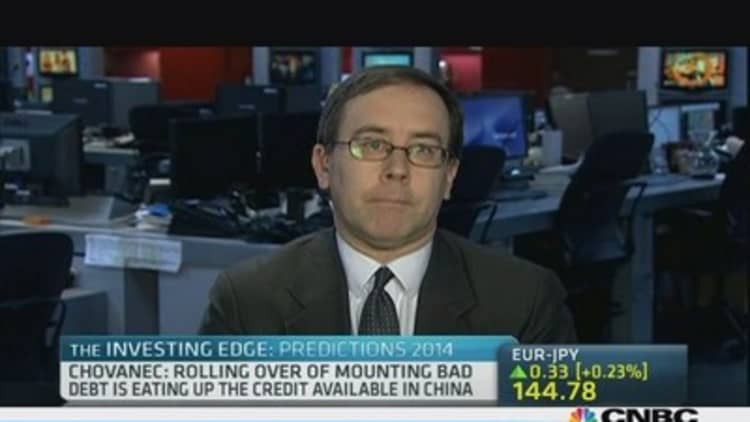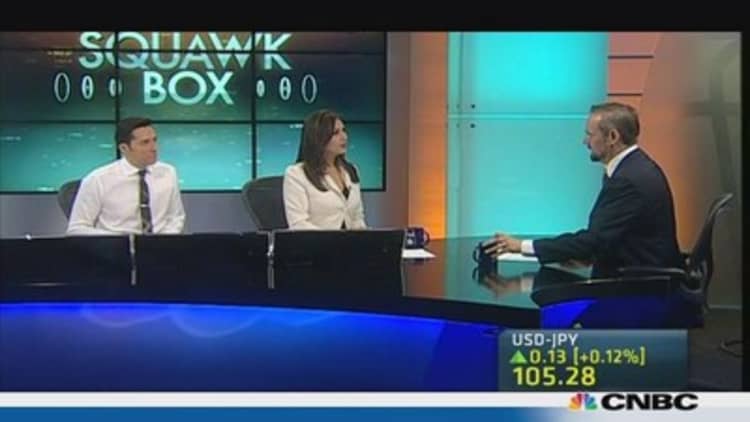
Shares in China may be cheap, but they're likely to stay that way until the bad loans clogging up the mainland's financial system are cleared, a fund manager said.
"They've let so much credit pile up and a lot of that credit is now gunking up the system because it's turned into bad debt," said Patrick Chovanec, chief strategist at Silvercrest Asset Management, which advises on $13.9 billion worth of investments for clients. "A lot of credit expansion is going to evergreen bad loans instead of actually generating real growth."
(Read more: China shares may be cheap, but they could get cheaper)
Others are also concerned about bad loans being rolled over. "That sops up so much of the liquidity in that market," said Tony Nash, vice president at consultancy IHS, noting some reports indicate that half of the unconventional loans on the mainland go into rolling over the same unconventional loans.
It's a factor weighing on the mainland's stock markets. By many measures, China shares are trading at bargain valuations at 9.3 times 12-month forward earnings, a more than 22 percent discount to the long-term average, according to data from Nomura.
But investors haven't been biting. Despite a slew of reform measures now in the pipeline after the key Third Plenum in November, markets on the mainland have stalled. The Shanghai Composite is down around 6 percent so far this year and down around 4.5 percent from where it ended 2012.
(Read more: Are China bank stocks cheap or just crummy?)
"People look at Chinese stocks and they say, 'wow they've got a low price-to-earnings ratio.' But that means that you either believe they've got growth prospects or you believe the earnings number," Chovanec told CNBC.
"If you think that the earnings are overstated, either by people making sales on credit or not recognizing bad debt where it exists, then you've got to question whether that price-to-earnings ratio is such a deal," he added.

(Read more: Chinese PM Li Keqiang pledges 'appropriate liquidity' in 2014)
Nash is also concerned about skeletons in China's closets, citing news over the weekend that hundreds of officials resigned in the wake of a bribery scandal.
"Those are some of the initial skeletons that come out of the closet," Nash told CNBC. "More and more of those types of things will come to light," he said, adding he expects the new administration will want to handle these matters as quickly as possible.
(Read more: Lawmakers in Chinese city resign in mass bribery case)
Chovanec said he is hopeful that at least some of the reforms proposed at the recent Third Plenum will be enacted, "but it's going to be very costly, it's going to be very painful. And people who expect a smooth ride going forward, people who think we're going to have reform so growth is going to rebound, I think they are in for some unpleasant surprises."
Much of China's financial system has been predicated "on the assumption that everything is too big to fail," Chovanec said, adding "we're going to have to see a real process of creative destruction take place in the Chinese economy."
—By CNBC.Com's Leslie Shaffer; Follow her on Twitter @LeslieShaffer1


